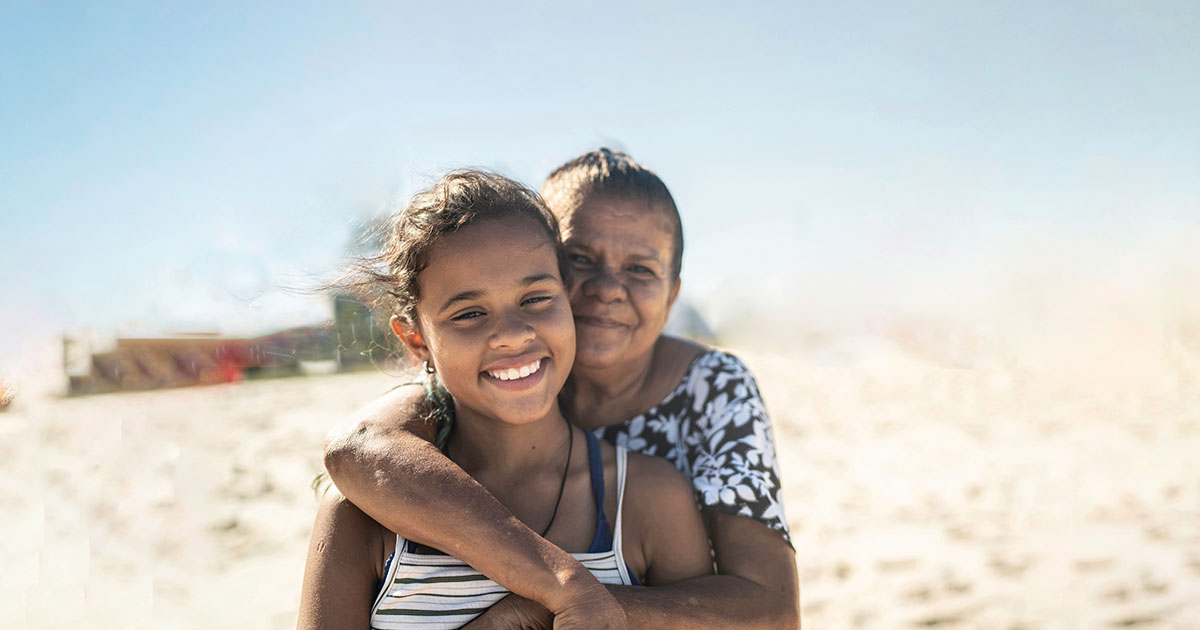Keeping up the momentum post-COVID
- Details
For nearly two years now we have been individually, and collectively, tested beyond our imagination. When COVID-19 first hit and we entered our first lockdowns early in 2020, we all had to swiftly adapt. Our external environment evolved considerably with governments enacting rapid policy change and with some donors falling away because of financial pressures whilst others increased their support for services like Mission Australia because of the enhanced public concern about people in need.
Of course, the pandemic also spurred immense and rapid change in the world of social service delivery, as organisations like Mission Australia learned new skills and harnessed resourceful ways to serve people in new ways. Our staff did and continue to do everything they can to safely connect and care for people and families that we serve.
The pandemic accelerated the digital transformation of many organisations and the not-for-profit sector was no different as we moved towards increased virtual and remote work. Digital delivery of one-on-one support has certainly opened up new ways for clients to engage more and in new ways with our services. Using new technologies has also helped us expand the reach of many services to new clients and more regions, which has been especially beneficial in reaching people who need support in remote areas.
Thanks to different modes of technology, we found many of the people we serve benefitted from more individually tailored engagement approaches, greater choice and the increased frequency of contact with our frontline staff. Some clients felt a great sense of pride and independence after honing their ability to use technology, which resulted in a fast-tracked increase of digital literacy for many. We also received feedback that digital technology helped improve integration and coordination of care that people received from different organisations and providers.
Increased collaboration has also been a big part of our COVID-19 service delivery response. Intensive collaboration in the homelessness space saw rough sleepers quickly housed in temporary accommodation and engaged with supports in an effort to protect them from the virus. Focussed collaboration also resulted in many fast-tracked housing outcomes that would not usually have occurred during normal circumstances. We were truly in it together as a sector, as organisations like Mission Australia worked together across boundaries to pool resources to help each other to better support the people we collectively serve.
As we head towards Christmas and the new year after 20 plus months of responding to the pandemic, what are the opportunities we have to build back better and fairer in not-for-profit service delivery? How can we scale and embed the innovative and good practices that were developed during the time we adapted to cope with COVID-19? What opportunities should we harness to address the emerging needs of our clients that have resulted from the pandemic?
For me, it’s clear that we have to grasp what we have learned and use the momentum gained to propel ourselves forward into 2022 and beyond.
During this delta wave our emphasis has been less on preserving the organisation for our staff and the people we serve and more on looking after our people. Changes in working practices, isolation, endless Teams or Zoom calls, home-schooling and plenty more additional challenges have all taken their toll. I am very aware that our people are tired, and we are doing what we can from a pastoral care and support point of view to make it possible for people to be as well as they can be. All organisations must prioritise looking after staff. Without our people, we are nothing.
It’s clear that planning remains a cornerstone of success. The plans themselves may not be perfect, and as we saw when our Common Ground building was locked down, things that we didn’t anticipate would happen happened and things that we anticipated would happen, didn’t. I have never been obsessed with having a perfect plan, there’s probably no such thing, but it was the act of planning which stood us in good stead. The internal teams that worked together scenario planning were the same teams who worked together on issues when they occurred. It was the working together that was the bedrock of the success.
Further embedding of digital service delivery must be prioritised. I’m not a believer in the replacement of human interaction with machines, but I do think that we can no longer resist the use of technology as a platform in service delivery. As a sector, we need to look at how and when to use digital service delivery to augment our practices effectively to create greater impact for vulnerable people and in the communities we work in. Doing our bit to first bridge, and then close, the digital divide is also key.
Collaboration is vital if we want to see people receive quality, tailored support at their time of need. There have been some rapidly formed and unique collaborations in response to COVID-19, and we need to look closely at how many of those can we build on for the future.
I have been so proud of what we have done as a sector, and at Mission Australia, both to support our clients and each other through the many challenges that have been thrown our way. I also don’t underestimate the work that still needs to be done as we learn and prepare ourselves to live in a world in which we manage COVID-19 rather than let it manage us.
There have been many stories emerge over the past couple of years about people – both clients and staff – who have shown great resilience, foresight and grit. This gives me tremendous hope for the future as we head towards COVID-19 recovery and build back better and fairer together.

James Toomey
CEO Mission Australia
@jbc_toomey
Related media releases
Read about what we’ve been working on, our stance on important social issues and how you make a difference to vulnerable Australians' lives.



